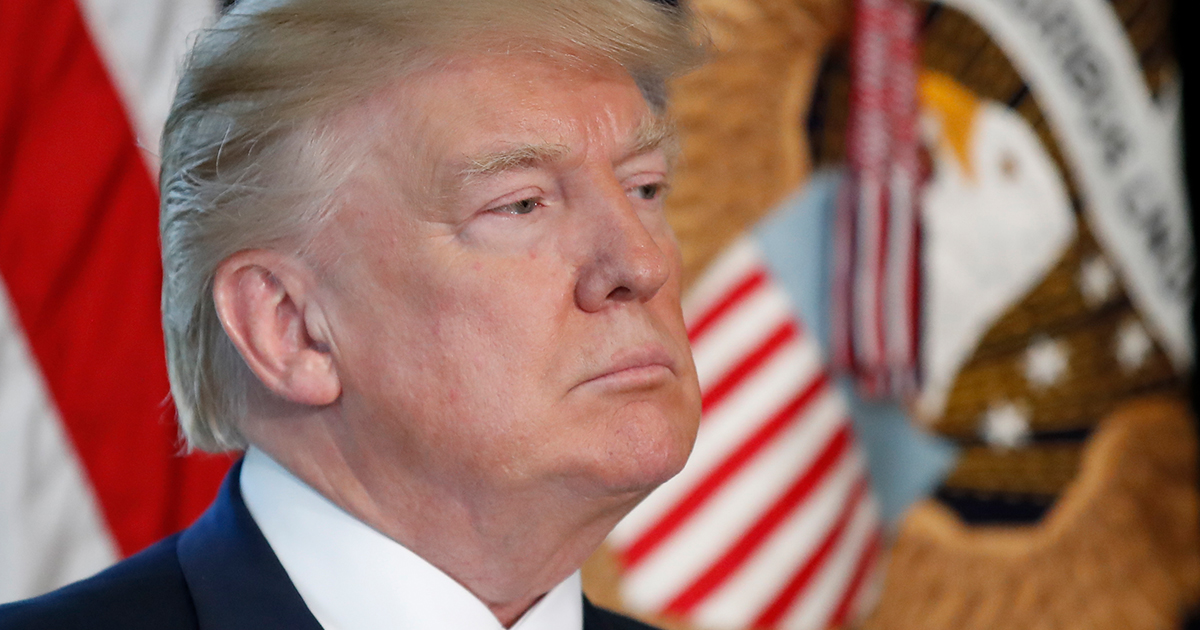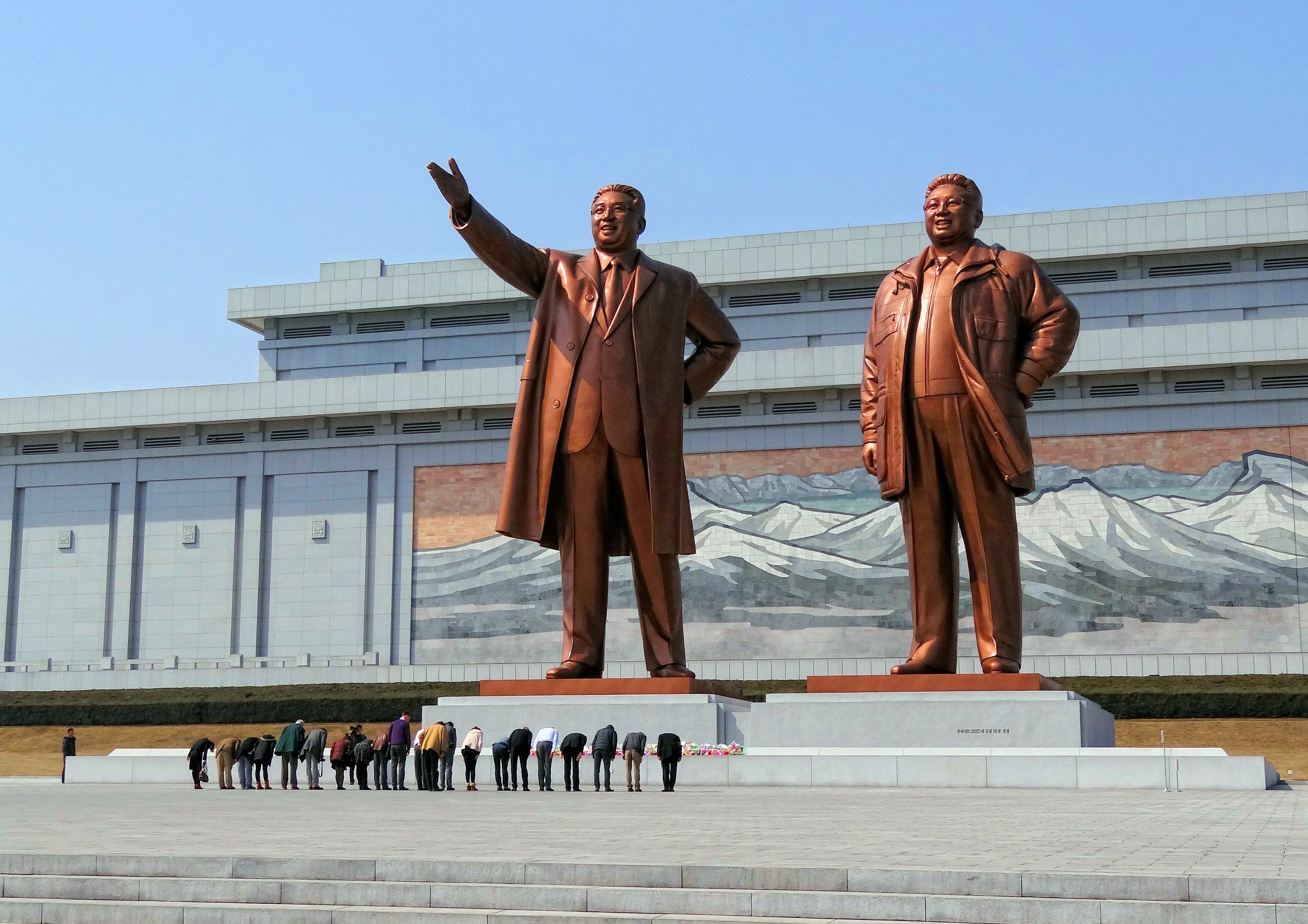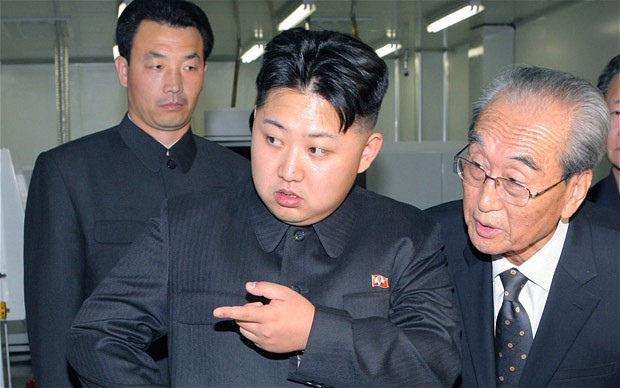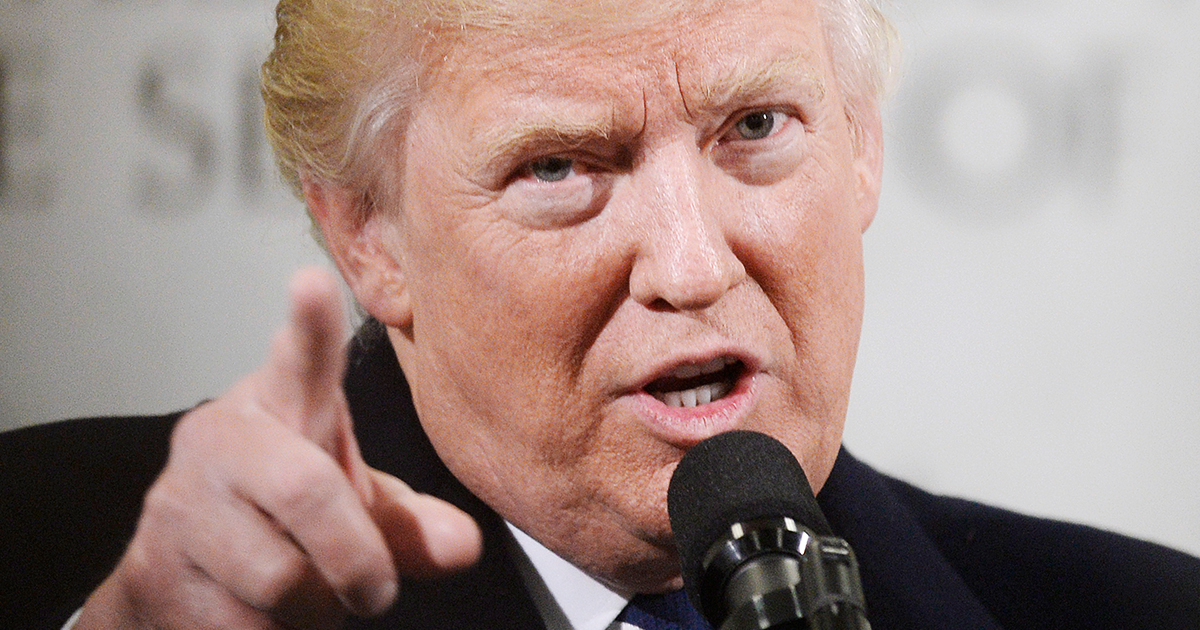How Much You Should Really Worry About North Korea

By:
The nuclear stand-off between Donald Trump and Kim Jong-un intensified on Thursday, as the U.S. president doubled-down on his threat to rain "fire and fury like the world has never seen" on North Korea. The comments came hours after North Korea detailed a missile strike targeting bases surrounding the U.S. territory Guam later this month, prompting Trump to say his "fire and fury" statement "wasn't tough enough."
 AP/Alex Brandon - apimages.com
AP/Alex Brandon - apimages.com
The escalated rhetoric has been paired with ominous news reports. "The Bomb-Shelter Biz Is Exploding Thanks to North Korea’s Missile Tests," reads one recent New York Magazine headline.
The pandemonium has left many with the impression that we're on the brink of a very real conflict, yet experts like Steven Weber, a political science professor who specializes in international relations at the University of California, Berkeley, are cautioning against panic—for now.
ATTN: talked to Weber about the latest developments out of North Korea and how Trump's tendency to flip flop on issues might represent a strategic advantage.
 Wikimedia - wikimedia.org
Wikimedia - wikimedia.org
ATTN: How worried should we be about North Korea at this point?
I think if you weren't terribly worried 72 hours ago, before the escalation in rhetoric started, you shouldn't be that much more worried right now because, so far, it's just a war of words. The thing that people sometimes forget is that words are actually signals and that what both of these capitols are signaling to each other—and to the Chinese—is that they are determined to do something about this problem in the immediate future. That actually may be a good thing rather than a bad thing.
ATTN: What role does China play in this?
At the end of the day, the United States and North Korea cannot solve this problem between the two of them because they've set themselves up with completely incompatible positions. In other words, the Trump administration says it will not accept a nuclear North Korea—but there already is a nuclear North Korea. The North Koreans say they will never give up their nuclear weapons. So really the only way to find a kind of deal is for the Chinese to construct a deal that both sides feel slightly aggrieved by.
At the moment, the Chinese up until now haven't been willing to do that because having the water on a low boil on the Korean Peninsula actually serves their interests. I think what's really going on here is that both the Trump White House and Kim Jong-un are trying to turn the heat up to get the Chinese to move in their direction.
 Flickr - staticflickr.com
Flickr - staticflickr.com
ATTN: How dangerous is the president's escalated rhetoric here? You might expect this from Kim Jong-un but—
Well, here's the thing, I think I do expect this from Donald Trump as well. Here's the ironic thing: If this were Barack Obama, George W. Bush—if this were a more conventional U.S. president—I'd be more concerned. And the reason is, for those guys, what they said actually had political costs if they didn't follow through.
You'll remember when Barack Obama talked about the "red line" in Syria and then he didn't follow through on that thread, basically the Republicans beat him up with that for the next 3-and-a-half years. Trump beat him up with it; it had political costs for him. For Donald Trump, changing what he says from the morning to the night, or from one day to another, has no political costs. This morning it's "we're going to bring the fire and fury on you," tomorrow he could easily tweet out, "Hey look, Kim Jong-un, why don't you come to the White House? We'll have a hamburger and we'll solve this problem face-to-face."
ATTN: So you don't think we're past the point of no return in terms of forging a diplomatic resolution?
There's no secret formula that allows us to deal with this problem in a way that we haven't been able to deal with it for the last 15 years. Again, Donald Trump has created a situation where he has explicitly said that he will not accept a nuclear North Korea. He can keep saying that—he's said a lot of other things. He said we were going to build a wall and Mexico was going to pay for it and I don't see a wall going up. It's one of these weird situations where some of the things that probably many of us like least about him actually might work to his advantage and to the United States' advantage. I think—I think—barring insanity, everybody understands deep down that at the end of the day, there's not going to be a war on the Korean Peninsula.
 AP/Olivier Douliery - apimages.com
AP/Olivier Douliery - apimages.com
ATTN: What do we know about North Korea's nuclear capabilities?
There's some uncertainty about exactly how many weapons the North Koreans have. Some people believe it's upwards of 10, some people believe it might just below 100, it's probably somewhere in between. It's unclear exactly how big or what the yield of those weapons are, but that's irrelevant because a 10 kiloton device can destroy a city, as we saw in 1945.
ATTN: What do you make of North Korea's threat to attack Guam in mid-August?
I don't mean to be dismissive, but I think that if it were a real threat—as Donald Trump used to say about the Obama administration—would you tell people exactly when you were going to carry it out?
Look, who knows? All of this conversation—and every conversation I've had today—is pretty much premised on the notion that we're dealing with someone who, at the end of the day, is not completely insane, and we don't know for a fact that that is true. If he is completely—and I'm talking about Kim Jong-un, not Donald Trump—if he is completely insane, then all bets are off. Then it becomes a question of will the top people around him follow? Will they actually pull the switch or pull the trigger when he tells them to? We don't know, or at least I don't know enough about how the internal elite politics of the North Korean regime actually functions. I don't think anyone in the United States, without access to highly classified information, really knows the answer to that question, and I'm not sure that even people with access to highly classified information do.
This interview has been lightly edited for length and clarity.
